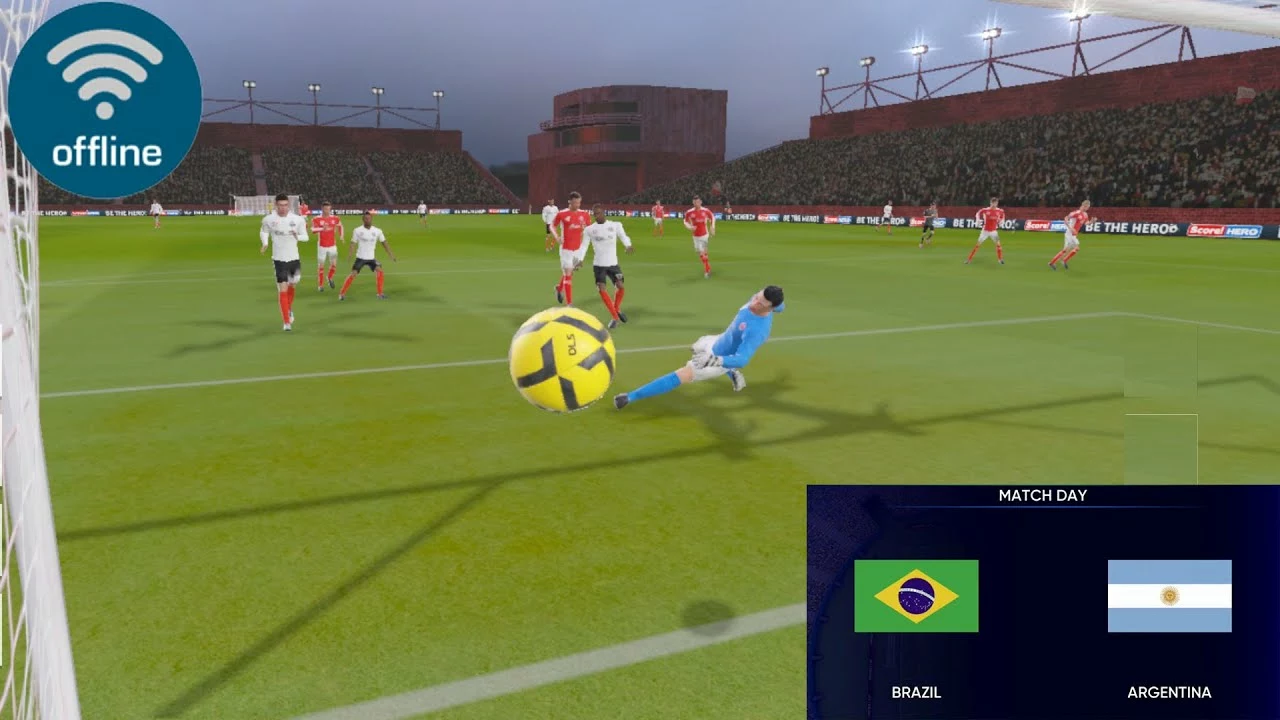Offline Soccer Game – Play Anywhere, No Internet Needed
When you hear offline soccer game, a football simulation that works without a live connection, letting you enjoy matches on the go. Also called stand‑alone soccer app, it lets fans practice tactics, try out skills, and settle scores even when Wi‑Fi is down. Soccer positions, the roles like striker, midfielder, defender or goalkeeper that shape how a team moves on the pitch become more noticeable when you control each player yourself, because you can’t rely on auto‑assist from online AI. Soccer leagues, the organized competitions such as the Premier League, La Liga or MLS that provide structure and rivalry often show up as selectable seasons in the game, giving a sense of real‑world stakes. And remember tied games, matches that end level after 90 minutes, a common outcome in low‑scoring football—offline modes usually let you replay those draws to decide a winner, teaching you when to push for a goal.
Why does an offline version matter? First, it removes the frustration of lag or dropped connections, so your timing stays crisp. Second, you can train specific skills—like mastering the goalkeeper dive or perfecting a free‑kick—without other players interrupting your flow. Finally, it’s a great way to experience the sport’s tactical depth: you decide when to press, when to sit back, and how the formation changes affect the chance of a draw or a win.
Key Benefits and How They Link Together
The core of any offline soccer game is that it encompasses a full match experience without needing the internet. That means the app requires a device with enough processing power and storage to run graphics, AI opponents and the rule set. Because the game runs locally, it influences how you develop on‑field instincts—practice runs get saved, and you can review them later. While you’re tweaking your formation, you’ll notice how each soccer position changes the flow; a strong goalkeeper can keep a tied game alive, whereas an aggressive striker may break the deadlock.
Most offline titles also let you pick a soccer league season. That choice mirrors real life: tougher leagues demand sharper tactics, which in turn raises the odds of close matches and tied outcomes. Understanding the dynamics of a league helps you plan long‑term strategies—like conserving player stamina for a later cup run or focusing on a defense‑first approach to avoid conceding late goals.
Speaking of tied games, they’re not just a statistical footnote. In an offline setting, a draw can be a teaching moment. You’ll see why teams sometimes “park the bus” to protect a point, and you can experiment with breaking that wall—maybe a quick counter‑attack from a deep‑lying midfielder or a set‑piece routine that catches the keeper off guard. Each replay gives you data on what works, turning a simple stalemate into a sandbox for tactical experiments.
Another practical angle is accessibility. Without a data plan, you can still enjoy the sport while travelling, on a train, or during a power outage. This flexibility expands the game’s reach, making it a handy tool for coaches who want to illustrate concepts without pulling out a whiteboard. They can run a quick offline match, pause, and point out how a change in formation altered the probability of ending in a tie.
From a community perspective, offline games often foster local competition. Friends can gather around a single device, take turns, and debate who mastered the goalkeeper role best. Those in‑person debates echo the larger discussions you see in our article collection about why matches end tied, how leagues differ, and which positions pay the most.
In short, an offline soccer game ties together the technical, tactical, and social sides of football. It gives you control over positions, lets you explore league structures, and offers a safe space to dissect tied outcomes—all without needing a Wi‑Fi signal. Below you’ll find a hand‑picked selection of articles that dive deeper into each of these areas, from salary trends for goalkeepers to the psychology behind teams that settle for draws.
Ready to see how these ideas play out in real articles? Scroll down to explore the range of topics, from player salaries to league comparisons, and find the insights that match your curiosity.
Which is the best Android offline soccer game?
Posted by Zander Callaghan with 0 comment(s)
Well, folks, if you're like me, you're always on the hunt for the best offline soccer game on Android. After much research, I must say, I've found the winning goal in 'Final Kick 2020.' This game is like the Messi of offline soccer games, dribbling around the defense of limited data and Wi-Fi connections. With an impressive 3D graphics, it's got the visual pop of a Ronaldo free-kick, and the controls are as smooth as a Neymar Jr. trick. So, if you're a football fan wanting to score some goals while offline, 'Final Kick 2020' should be your starting striker.
view more